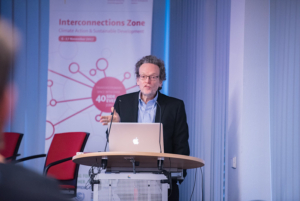Academics Stand Against Poverty: Solutions for a World in Need
 With half of the human population, around 3.5 billion, still exposed to severe poverty, a group of dedicated scholars and researchers are taking a stand. Academics Stand Against Poverty (ASAP) is an international community committed to confronting the rules and practices that perpetuate global poverty. It aims to advocate for targeted, evidence-based reforms that can make a real difference in the lives of millions.
With half of the human population, around 3.5 billion, still exposed to severe poverty, a group of dedicated scholars and researchers are taking a stand. Academics Stand Against Poverty (ASAP) is an international community committed to confronting the rules and practices that perpetuate global poverty. It aims to advocate for targeted, evidence-based reforms that can make a real difference in the lives of millions.
The Challenge: A Complex Web of Poverty
Poverty is not simply a lack of resources; it’s a complex web of interconnected issues. ASAP focuses on the structural drivers of poverty, which include:
- Illicit financial flows and tax havens
- Imbalanced trade agreements and intellectual property laws
- Economic policies such as austerity measures
These systemic issues create barriers that keep individuals and communities trapped in cycles of poverty. In our current “post-truth” world, where “alternative facts” often overshadow evidence-based research, ASAP’s work is crucial.
Academics Stand Against Poverty and Its Innovative Solutions
ASAP is tackling these challenges through a multi-faceted approach:
- Research and Advocacy: ASAP members conduct rigorous research to identify the root causes of poverty and develop evidence-based solutions. They then advocate for these solutions at various levels, from local communities to international policy-making bodies.
- AGAPE Initiative: ASAP has launched the Ambedkar Grants for Advancing Poverty Eradication (AGAPE) program, which provides competitive funding and mentoring for jumpstarting innovative pilot projects in severe poverty eradication. These projects are selected based on their potential for cost-effective scale-up.
- Collaborative Partnerships: ASAP works with other organizations to maximize impact. For example, it has partnered with Global Financial Integrity and Yale’s Global Justice Program to award the annual Amartya Sen Prizes, encouraging further research and innovation in addressing illicit financial flows.
- Education and Awareness: Through publications, conferences and public engagement, ASAP works to raise awareness about poverty issues and potential solutions among both academic and non-academic audiences.
Global Network: Fellowship Program and Chapters
ASAP’s global network of 19 chapters across the globe is a testament to its commitment to fostering academic dialogue and collaboration. With a strong presence among universities and academics in the global South, ASAP focuses on creating opportunities for those who face barriers to full participation in global academic dialogue.
ASAP’s growing network of members and national and regional chapters is the driving force behind its impact on global poverty. The organization connects like-minded faculty, students and researchers from different disciplines around the world with a common goal: to look at practical and achievable ways to tackle the systemic root causes that perpetuate poverty.
Success Stories
ASAP’s innovative approach is already yielding results. In its first year of operation, the AGAPE initiative made four awards in India, demonstrating the program’s commitment to supporting grassroots solutions. One notable project is the Snekithi Charitable Trust in Tamil Nadu, which received more than $2,300 for an initiative to raise the productivity and incomes of Dalit women farmers in the rain-fed areas of Karur District.
This project not only addresses poverty but also tackles issues of gender and caste inequality. While the full impact of these projects is still unfolding, they represent a promising start in ASAP’s mission to eradicate severe poverty. By supporting local initiatives with global expertise, ASAP is creating a model for sustainable, community-driven change.
Final Note
ASAP’s work offers hope in the face of daunting global challenges. By combining rigorous academic research with practical, on-the-ground solutions, ASAP is paving the way for a world structured to avert poverty. Its efforts show that when knowledge meets action, real change is possible.
In a world often divided by ideology and misinformation, ASAP stands as a beacon of evidence-based hope. ASAP challenges us all to think critically about the causes of poverty and to act decisively in creating a more just and equitable world for all.
– Staff Reports
Photo: Flickr
